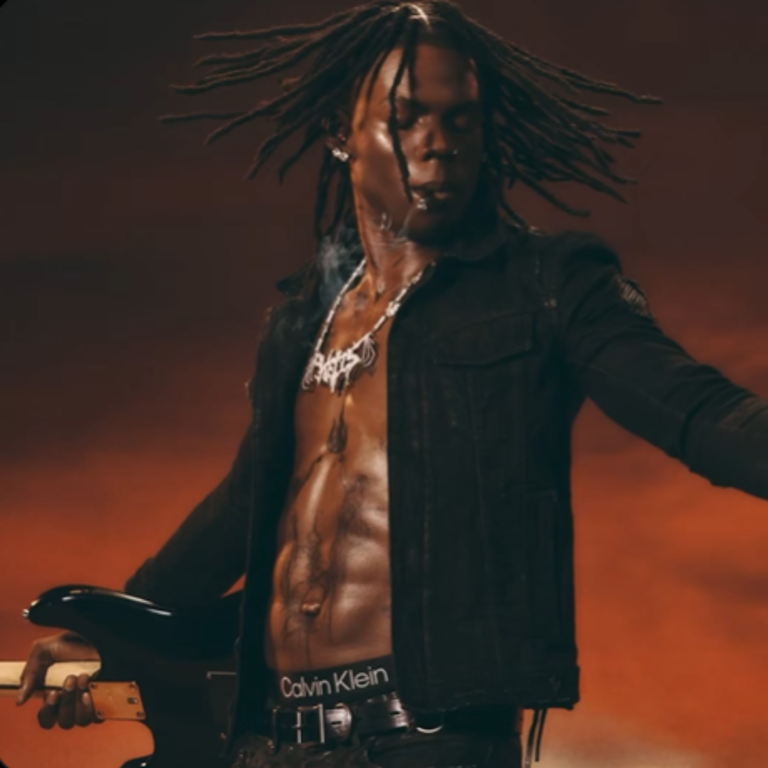Lagos has trust issues. Think turbulent dating scene, suspicious love affairs, wild sex life and fair-weathered friendship. Think sin city. Every expressed reservation is met with retorts like “Èkó ná n pebí” meaning “This is Lagos.” That leaves you with disgust or speeds you up to get with the programme.
To know Lagos is to be a vigilant crab or a blood-thirsty shark in its Atlantic world. To know Lagos is to be on the lookout like charlatans are out to get that your minimum wage. To know Lagos is to play for keeps upon finding out there are no real lovers in the skreets. To know this city is to love and hate it. To know Lagos better is to listen to the sons of the soil.
These Lagos love stories are told by Lasgidi chroniclers Show Dem Camp (SDC) on their new album, “No Love In Lagos”, a collaborative effort with the magic-fingers guitarist Nsikak David and the urban highlife duo The Cavemen.
SDC (Tec and Ghost) is the guide with engaging rap verses about the city, its street OT, socio-politics, lifestyle, love life, naira life, cruise, the madness and the chaos. They fuse all these into lush, enjoyable soundtracks of smooth highlife, sexy Afrobeats that are perfect for a boujee Kegite gyration setting. Nsikak David isn’t new in their midst. He has been both a session man at their recordings and a side man at their concerts. The inclusion of The Cavemen is an expected extension of their symphony. They’re all complimentary, with the lively production of Spax, SDC’s go-to producer. This line-up is a fantasy of the SDC and The Cavemen fans come true.
The album starts with the ethereal tone-marking Intro musing about loving who or what isn’t loving back. Then the advice you didn’t ask for hits you on No Love In Lagos, the groovy titular and lead single. It bursts in with a melodious cautionary statement that instinctively tells the listener or whoever thinks of finding love in Lagos to use their “upstairs” and “shine” their eyes. In the first verse, Tec’s raps continues the spoken word from the intro, centering unrequited love. Trust is all he asks for, though he’s not raising his expectations. The Cavemen continues to warn, “Dem no dey love for Lagos” in the chorus. Ghost, the cat with the baritone, comes in unavailable for emotional love but readily available for physical love, curiously called love-making, either as main partner or paramour. However, his perspective rests on the following: “Choose who dey choose you, don’t be the victim of a scammer.”
Johni warns to remain vigilant about the superficial nature of love and relationships (romantic, friendship, work or business). It urges to avoid see-finish or the tag of “Johni Just Comer (JJC)”, AKA an amateur. Tec and Ghost’s verses touch on hunger games, the rat race and the allure of the outsiders, leaving many angles to consider when choosing lovers, friends and partners.
The urbane poor voice of Lagos comes out to play in the chorus of the Why. The Cavemen sings about undesirable elements that won’t let them enjoy themselves in peace. Beyond the surface, it speaks of the powerful oppressing the poor. A perfect imagery of this chorus would be holding someone’s neck while they’re trying to eat. The “E le, le, le, le, e le, le o” exclamation of Benjamin amplifies the cry and helplessness of the poor and oppressed and marks their resilience: “You can’t take my joy, oh, oh.” Tec and Ghost ponder the ruthless nature of the city while maintaining faith in a higher power and guidance.
If you’re secular, you might say Fall is serendipity and reflection, others might call it miraculous intervention and gratitude. The rappers look back at humble points in their lives, their maturity, willpower and growth. Buga with Tim Lyre swaggers is in for faaji; it’s a good time. Tim Lyre’s juju-inflected chorus is an untarnished response to bad-belle. Though the Economic and Financial Crimes Commission (EFCC) is on alert for currency mutilation money-spraying, imagine a performance of this song as cash flies and pours on the performing artists. OMFTR continues to flex on haters. It’s a bouncy, slow-tempo record. It features Obongjayar, who reiterates The Cavemen’s take and the song’s message to prove doubters wrongs and surpass expectations.
On Blessings, Tec prays for humility and bigs up his crew. Moelogo ushers us into a divine mood, throwing up prayers to remain on top in life. Ghost proudly reflects on their music journey, from being an African premier rap group to building an annual music festival and touring the world with the music. Then, he prays for an impactful lyricism and legacy. Because when it’s all said and done, SDC is now more about legacy than prosperity.
The movement isn’t stopping. It forges ahead into the future, no matter the roadblock. This is what Train symbolises. Nigerian-English singer Ruti questions the cost of staying where purpose no longer serves while looking to find a way out. Tec remains watchful, eyes open for the snakes. He stays guided by the central theme, “No Love In Lagos,” focusing on his journey and development. The thirty-two-minute duration of the album comes to an end after Sudden Day. It emphasises SDC’s rise to legends and reinforces its stamp in the Nigerian music industry. It’s a befitting curtain call.
“No Love In Lagos” continues Show Dem Camp’s winning streak as conceptual album artists and storytellers majoring in Nigerian stories. Their penchant for cultivating a distinct hip-hop, jazz, and highlife sound that holds time, events, and history in capsule has afforded their music to touch listeners intimately. The involvement of Nsikak David and The Cavemen enhances its vibrancy and nudges the sound forward, providing the album’s ambience in an attractive way that makes the average listener care for it. Although it sounds more like a Show Dem Camp album with assistance from others, it’s incomplete, sonically, without their contributions.
“No Love In Lagos” is a common statement that beware naive lovers and friends to avoid dependent trust in Lagosians. It’s not a collective description of everyone, Lagos is just a tough place that suffers one for dependency, sluggishness, redundancy and ignorance. The rap verses are open enough to provide layers of experiences and lessons. The album’s sonic is appealing. It’s a soundtrack to any chore, activity or time of the day. “No Love In Lagos” is a well-crafted, digestible project that serves their dedicated fanbases more, and it’s one of the best releases of 2024 so far.
Bang bang!




